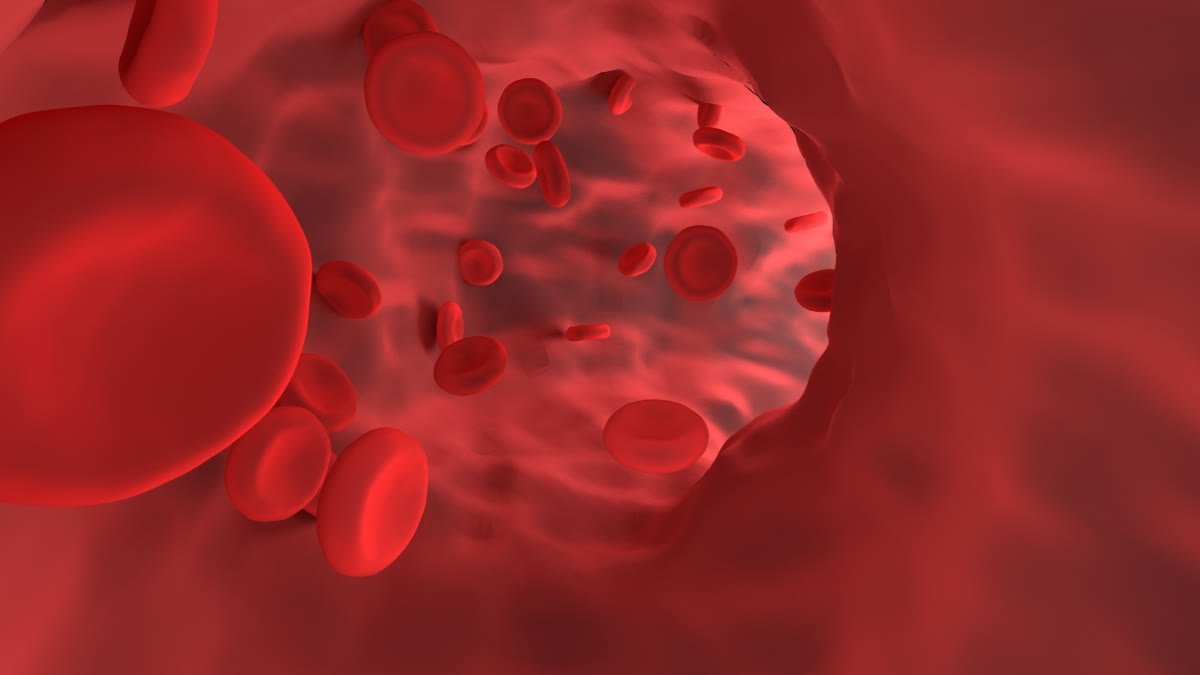Hyderabad: Doctors and experts always advise people to consume healthy and nutritious food in the required quantity. Our diet is very important for the nutrition we receive for the smooth functioning of our body's immune system and other functions. Nutrients and minerals like iron, protein, vitamins and calcium in our diet play an important role in keeping our body's internal systems and processes smooth and healthy. Also, these nutrients help in forming various internal physiological functions, and special types of substances in our body, which ensures to keep our body healthy in various ways.
Haemoglobin is termed a protein found in the red blood cells, and a lack of it is considered to be a condition called anaemia. If the blood's haemoglobin decreases extensively, it affects our physical and mental abilities and can also cause serious problems. It is necessary to have an appropriate amount of haemoglobin in our blood.
Dr Divya Sharma, a nutritionist from Delhi, says that haemoglobin is an important protein found in our red blood cells i.e. RBCs, which delivers oxygen to our entire body through blood. When the amount of haemoglobin in the body becomes too low, the supply of essential oxygen to all the body's organs, tissues and cells starts getting obstructed. This condition can cause many diseases and problems.
She further explains that its ideal amount is different in men, women and children, as in normal conditions, the level of haemoglobin in a newborn baby is considered to be 17.22 g / dl, while in children it is 11.13 g / dl. On the other hand, the ideal level of haemoglobin in the blood of an adult male is considered to be 14 to 18 g/dL and 12 to 16 g/dL in an adult female. In adults, a decrease of one or two points in this number is usually not considered very harmful, but if the level of haemoglobin in the blood drops to 8 grams or below, then it is considered a worrisome condition, and the person should consult a doctor immediately.
Also read: Did you know dietary restraint reduces effects of genetic risk of obesity? Study finds
Due to a deficiency of haemoglobin in the blood, or a condition of anaemia, many times some physical and mental issues are witnessed in varying intensities in the affected person. Some of these issues are as follows:
- Frequent headaches.
- Breathlessness and dizziness.
- Fatigue and weakness.
- A feeling of stiffness in the body.
- Low blood pressure.
- Decreased energy levels in the body.
- Irritability and nervousness.
- Chest pain.
- Fast or irregular heartbeat.
- Anaemia.
- Extreme chills and cold hands and feet.
- Decreased concentration.
- Weaker bone density.
- Weak immunity or immunity-related diseases.
- Excessive pain during menstruation in women, etc.
Dr Divya explains that lack of nutrition in the body is not the only reason for the lack of haemoglobin in the blood. Sometimes due to genetic reasons, problems like sickle cell anaemia, diseases or physical problems like cancer, thalassemia, kidney problem, liver disease, chronic health conditions like autoimmune disease, bone marrow disorder and thyroid disease etc, can be the cause of low levels of haemoglobin. Apart from these, problems such as depression, apathy, drowsiness and irritability and a decrease in cognitive and logical ability can also be seen in people with lower haemoglobin count.
She further says that it is very important to have the right amount of haemoglobin in the blood to avoid anaemia. Although the problem of anaemia is commonly noticed in women of almost every age, pregnant women, growing children, the elderly and people who are recovering from some serious disease are more likely to have haemoglobin deficiency in the blood. In such situations, according to the condition, gender and age of the victim, doctors also advise medicines or supplements to prevent anaemia. But a proper diet is the best and safest option to maintain the ideal level of haemoglobin.
Dr Divya explains that increasing the number of foods containing iron, vitamin C, vitamin B and folic acid in the diet is very beneficial to avoid anaemia under normal circumstances and to maintain the right amount of haemoglobin in the blood. A deficiency of iron and folic acid in the body is one of the most common causes of anaemia or low level of haemoglobin in the blood.
To ensure this, including green leafy vegetables and fruits, especially spinach, beans, beetroot, carrot, sweet potato, pomegranate, watermelon, strawberry, guava, kiwi, papaya, grapes, banana and broccoli, pulses, rice, whole grains and bread made from them, mint leaves, basil leaves, coriander, bay leaves, meat, curd, tofu, dry fruits and seeds such as pumpkin seeds, dates, peanuts and sprouted grains etc. in your regular diet helps a lot, as they are rich in all the essential nutrients including iron, folic acid, protein, carbohydrate, fibre, calcium and potassium, which helps in increasing and maintaining the number of red blood cells in the body.
Apart from this, it is also beneficial to include regular exercise in your routine because by exercising, the demand for oxygen in the whole body increases, in response to which the production of haemoglobin in the blood also increases. On the other hand, people who suffer from this condition due to any disease or health reasons should follow the instructions and precautions given by their doctor. Apart from this, the diet and medicines prescribed by them should be consumed regularly and on time.



